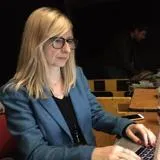Europe is changing. The long-term impacts of the Global Financial Crisis have not fully been resolved, and Europe is still managing the consequences of economic instabilities, migration pressures, political polarisation among and within European societies, and the continuing aftershocks of Brexit, the pandemic, and the ongoing war in Ukraine. The European Union is leaving a period of ‘eurosclerosis’ and even dis-integration and is planning a new round of enlargement into Eastern Europe and the western Balkans, even as populist, Eurosceptic and Euroalternativist movements gain popularity and power within existing EU members. Questions of who is and is not – and who should and should not be – “European” have accelerated in recent years. As Europe moves from a soft power producing social legislation to a hard power producing 155mm artillery shells, increasing questions are asked over what “Europe” is – and what it ought to be.
Change in Europe coincides with a long-overdue academic refocus away from a narrower view of Europe and the institutions of the EU, to “Europe” as an idea at the elite and the everyday levels, and the relationships its people share with other societies across geography and history. As Europeans face internal and external challenges to democracy, greater research is required into how national and European-level politics are impacted, and how challenges within wider Europe shape its relationships around the world. Understanding the intricate relationships and complex problems of contemporary Europe requires interdisciplinary approaches from academics of different backgrounds using a variety of methodologies.
The European Politics and Society research group brings together scholars of all career stages to discuss ongoing work related to the changing identity, visions, capabilities, and relationships which shape contemporary Europe and Europeans.


